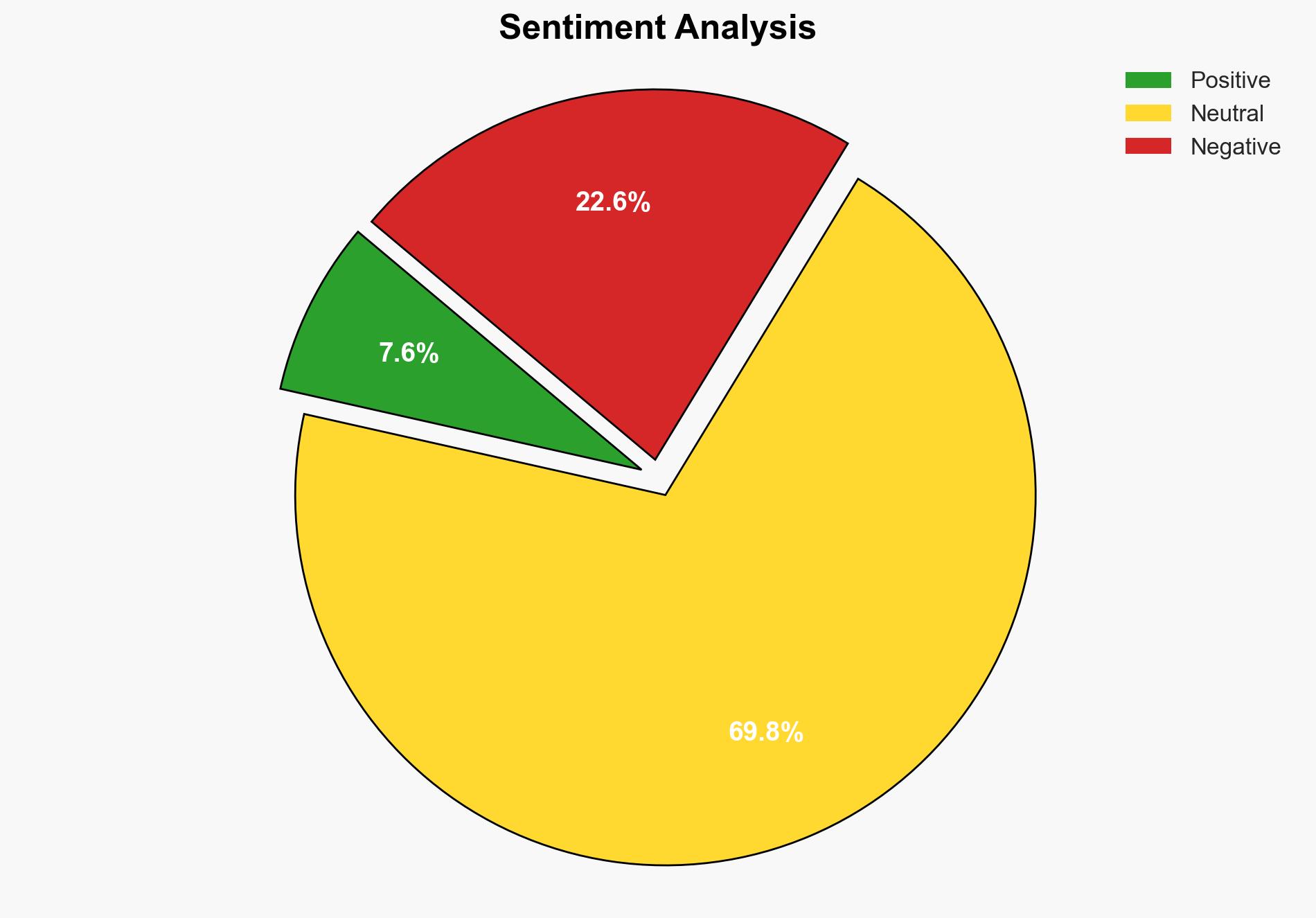Google fixes Chrome zero-day exploited in espionage campaign – BleepingComputer
Published on: 2025-03-26
Intelligence Report: Google fixes Chrome zero-day exploited in espionage campaign – BleepingComputer
1. BLUF (Bottom Line Up Front)
Google has addressed a high-severity zero-day vulnerability in Chrome, which was actively exploited in a cyber-espionage campaign targeting Russian media outlets and educational organizations. The vulnerability, tracked as CVE, was discovered by Kaspersky researchers and has been patched in the latest Chrome update. The exploitation involved bypassing Chrome’s sandbox protection to deploy sophisticated malware, indicating a likely espionage motive. Immediate updates to Chrome are recommended to mitigate potential risks.
2. Detailed Analysis
The following structured analytic techniques have been applied for this analysis:
General Analysis
The zero-day vulnerability in Chrome, identified as CVE, was exploited to escape the browser sandbox and deploy malware. This attack, dubbed “Operation ForumTroll,” targeted Russian organizations, including media and educational institutions. The attack vector involved phishing emails with invitations to a forum, leading victims to a malicious domain. The exploitation chain included a secondary vulnerability for remote code execution, enhancing the attack’s sophistication. The discovery by Kaspersky’s Boris Larin and Igor Kuznetsov highlights the ongoing threat of cyber-espionage campaigns leveraging browser vulnerabilities.
3. Implications and Strategic Risks
The exploitation of the Chrome zero-day poses significant risks to national security, particularly for Russian entities. The attack’s sophistication suggests state-sponsored involvement, potentially destabilizing regional cybersecurity. The vulnerability’s existence in the wild underscores the need for robust cybersecurity measures across sectors. Economic interests may also be at risk if similar vulnerabilities are exploited in other critical software.
4. Recommendations and Outlook
Recommendations:
- Encourage immediate updates to the latest Chrome version to mitigate the vulnerability.
- Enhance phishing awareness and training for organizations to prevent similar attacks.
- Invest in advanced threat detection and response capabilities to identify and neutralize sophisticated cyber threats.
Outlook:
Best-case scenario: Rapid adoption of the Chrome update prevents further exploitation, and enhanced cybersecurity measures reduce the risk of similar attacks.
Worst-case scenario: Delayed updates and inadequate cybersecurity responses lead to widespread exploitation of similar vulnerabilities, compromising sensitive information.
Most likely scenario: Organizations gradually update their systems, reducing immediate risks but requiring ongoing vigilance against evolving threats.
5. Key Individuals and Entities
The report mentions significant individuals and organizations involved in the discovery and analysis of the vulnerability:
- Boris Larin
- Igor Kuznetsov
- Kaspersky




